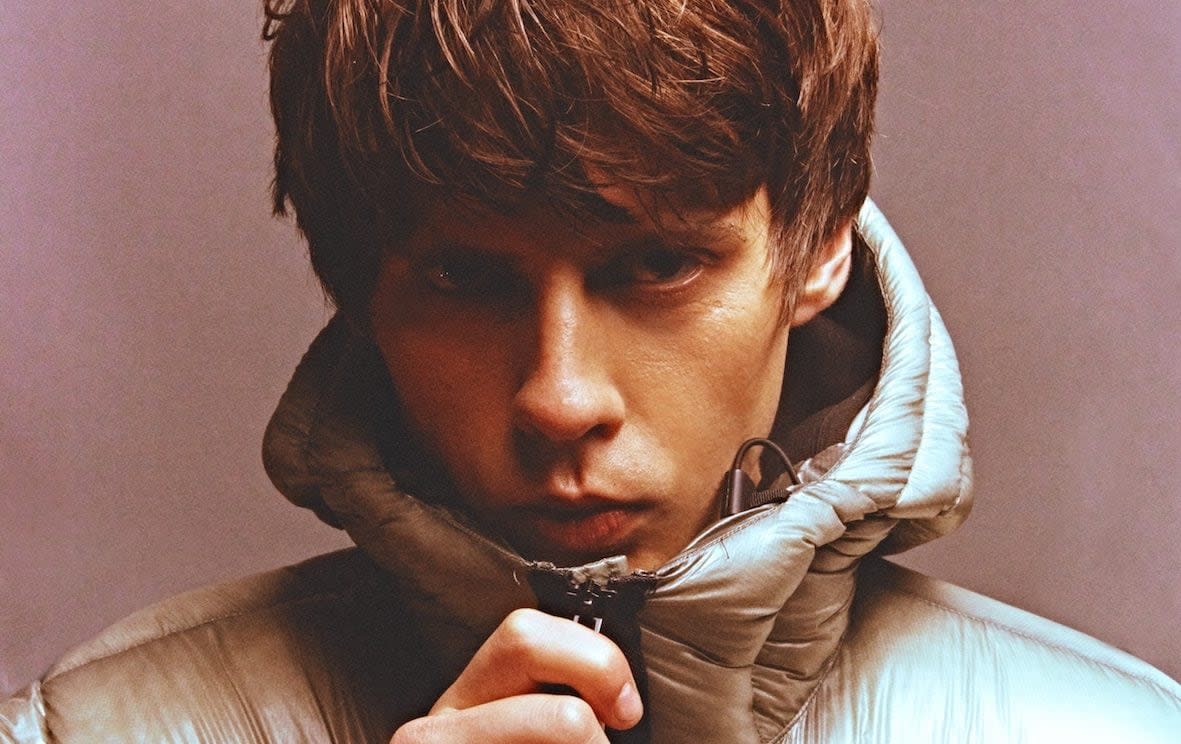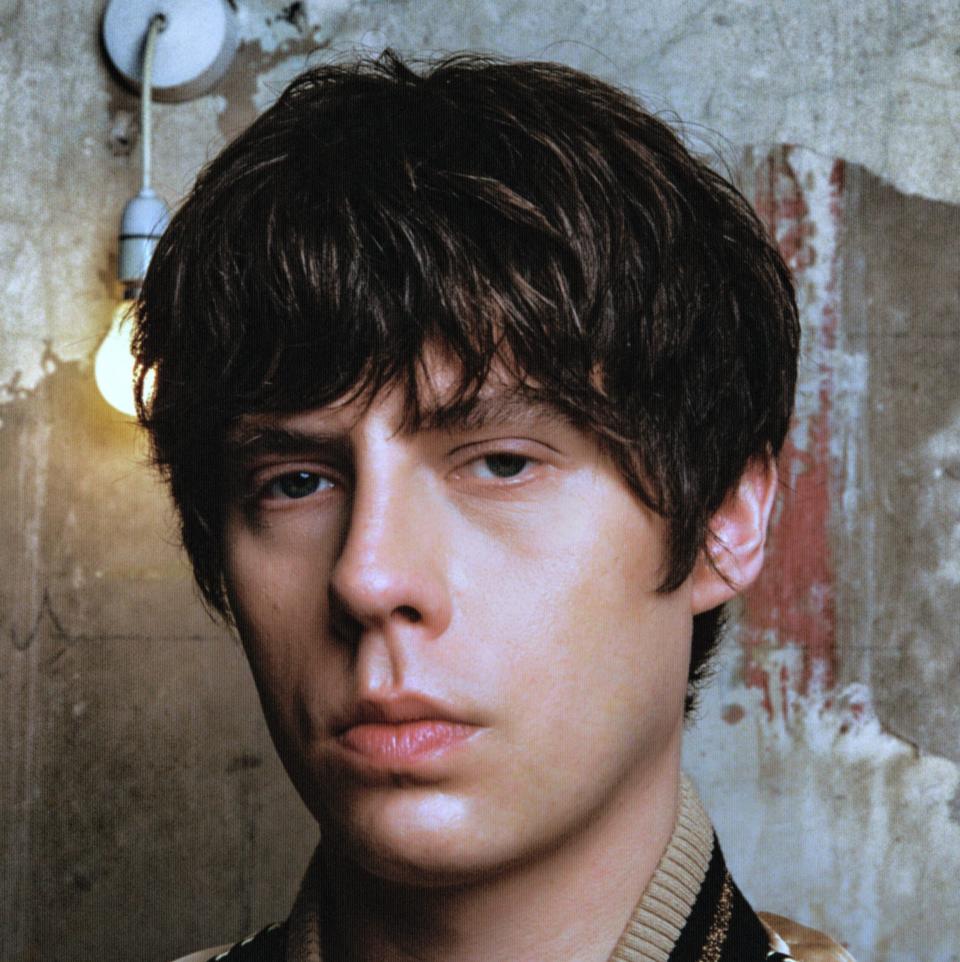Jake Bugg: ‘People think suddenly you’ve got money and everything you’ve ever wanted’

I first met Jake Bugg backstage in July 2012, at Scotland’s T in the Park festival, where the artist propping up the bottom of the bill was beating all-comers at table tennis. When I asked why he was so good at the game, this teenager, with the look of a junior Paul Weller, said he’d not long left school and had “spent a lot of time in the common room”. He’d already released a couple of songs, with one, Lightning Bolt, reaching No 26 in the charts, but he was a largely unheralded unknown.
Nine years later, Bugg, previously known as a bluesy singer-songwriter, is with his fifth album, Saturday Night, Sunday Morning, making a play for what we might call the “smart pop mainstream”, and aiming for another shot at the big time after a mid-career slump. His recent single All I Need, a fixture on Radio 2, was written with Steve Mac – co-writer of Ed Sheeran’s Shape of You, Clean Bandit’s Rockabye and dozens more – while another stand-out, the stately singalong Scene, was co-written with Ali Tamposi, who co-wrote Camila Cabello’s global smash Havana.
Bugg’s self-titled 2012 debut, by contrast, was stuffed with observational songs about growing up and kicking about in Nottingham: “quite an angry young kid”, as he puts it now. It knocked Mumford and Sons off the Number One slot: at 18 years and eight months, with his first album Jake Bugg became the youngest British man to top the charts. He sold almost half a million copies, was nominated for two Ivor Novellos for the song Two Fingers, and – that essential barometer of modern cultural success – had a relationship with someone more famous, supermodel Cara Delevingne. As an immigration officer at Dallas/Fort Worth airport put it to me in 2013: “Ah, Jake Bugg. He’s the new Dylan, right?”
Today, 27 years old and sitting outside a pub in south-west London, the guarded, occasionally truculent teen I met years ago is long gone. Now Bugg is relaxed and amiable, brutally honest about the ups and downs of his career, but also buoyed by the prospect of a comeback after a few years in the wilderness.
He and his band – the same lads and road-crew he was touring with nine years ago – are rehearsing nearby, ahead of a smattering of summer festival dates. But Bugg is also putting the finishing touches to the score for The Happiest Man in the World, a documentary about Brazilian footballer Ronaldinho. It’s directed by The Douglas Brothers, who have previously shot Bugg’s music videos.
It’s four years since Bugg last released an album, but he still remembers his old label’s concerns that he wanted to record a second album with Rick Rubin in California while promoting his first.
“They were s__ing themselves. I didn’t have any more songs, and it was going to cost a fortune,” he recalls. “Two weeks in Malibu, working with one of the most renowned producers in the world? That experience was priceless, though I wish I was more appreciative at the time. But I guess you’re not when you’re 18 or 19. You think the world’s your oyster, and you take everything for granted.”
Nonetheless, he reflects, “maybe it wasn’t such a good thing to have so much success early. But also, in the current climate, the way the industry is now, I might not have had any success at all!”
Did his immediate success spin him out? “No, I think I took it in my stride. There were obviously things I could have done better, and it probably affected me down the line, especially with the third record,” he says of 2016’s underperforming On My One, which he insisted on producing himself. “There was a lot to take in.”
He admits his sudden success caused some tension at home.
“At first it was tough. People think [that] suddenly you’ve got money and everything you’ve ever wanted. People I’d grown up with and known all my life, they looked at me differently. I wasn’t the Jake they’d grown up with any more… those first couple of years were strange.”
I remember his discomfort back then, when we met and I asked about his relationship with Delevingne. Interest in his life from a “celebrity” angle was not something he’d anticipated. “I feel uncomfortable talking about anybody else, to be honest – I don’t want to drag anybody else into the conversation, or talk on someone else’s behalf… [But] if anything, it probably toughened me up.”
There was a period with the paparazzi trailing him, the most challenging moment coming when “me and Cara got papped outside the Burberry store in London. I wasn’t expecting that.” He winces. “That was kind of strange, all these flashing cameras, all stood outside, following you in the car, banging on the windows.”
One reason things are calmer today is that Bugg’s star waned in the wake of his second album, 2013’s Shangri La. On My One and Hearts That Strain (2017) both came and went without fanfare (despite Noah Cyrus, sister of Miley, joining him on the latter’s second single, Waiting). He remembers that “the pressure got to me a bit”. There were younger artists being signed, and new leadership at his label.
Initially, he thought they were supportive. “‘You’ve made a great record. And if anything goes wrong, it’s on us,’” he recalls one executive saying to him. “He was saying that if it didn’t work, I could blame them. And then it didn’t happen. The blame started coming down on me – [they were saying] I wouldn’t promote the record, I wasn’t getting out and about enough.”
Now, he’ll concede that “the songs probably weren’t up to scratch. And I was probably a bit too stubborn as well – I should have asked for help.”
Things are also calmer these days because Bugg lives quietly in west London. “I like living on my own,” he says. “If I didn’t, I probably wouldn’t have been able to do the movie soundtrack… There was so much learning involved. I had to learn bossa nova, samba, jazz chords and shapes I’d never messed around with before.”
I suggest that, despite his obsession with football, he’s not the most obvious candidate to write a culturally-appropriate score to a film about a South American footballing maestro.
“Absolutely not,” he agrees. “I’ve always worked on more electronic film score stuff – I’m a big Vangelis fan – although I’ve only ever done it for myself. But it meant I had stuff to send to the directors, and they liked what they heard and offered me the gig.”

His passion for the game is also demonstrated by his sponsoring of Notts County’s away kit for the upcoming season, at a personal cost of £30,000. “I want to help the club out,” he says. “And everyone’s saying it’s the best we’ve had in years – like a Barcelona or Real Madrid away kit… It’s a boyhood dream, sponsoring your team.”
Ten years on from signing his first record deal – when his mother had to sign it because he was underage – Bugg is in a good position financially. There isn’t much money coming in from the streaming services, but he recouped his last deal – that is, repaid his cash advances – which means he’s now receiving royalties. He’s also done well from his songs’ use in advertisements. The first was for pub chain Greene King, using Country Song; it was agreed when he was 17, but only allowed to air once he’d turned 18. Lightning Bolt then soundtracked a commercial for Gatorade, with Tiger Woods and Michael Jordan “and everyone big. That was surreal. And BMW used [the song] as well.”
He also gets paid by the Performing Rights Society every time a song of his is played on TV, either in an advert or as part of a sporting package – “which I always feel guilty about. All I Need was used during the Euros, and if it comes on at half-time, I’m sat here getting paid while watching football. It’s not right!” he laughs. “It’s like I’m stealing a living.”
When he eventually resumes touring proper, Bugg knows he’s making exactly the record he wanted to make. Saturday Night, Sunday Morning is true to what he wants to be now. “That was the most important thing for me on this record – make sure my DNA is still in it.
“Maybe I can survive. Maybe I have got a chance.”
Saturday Night, Sunday Morning is out on Sony RCA on Friday


